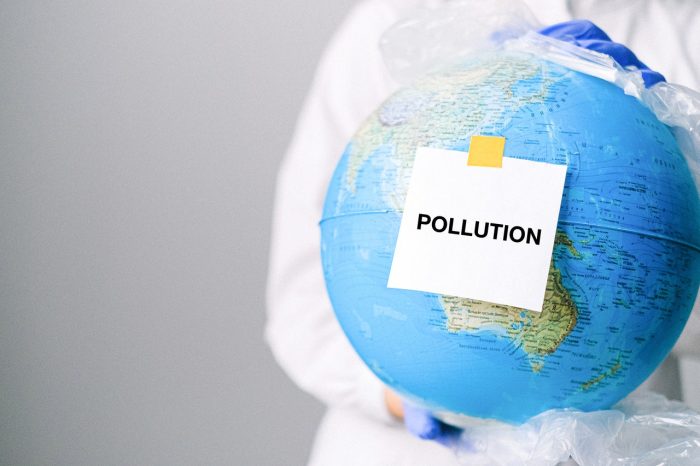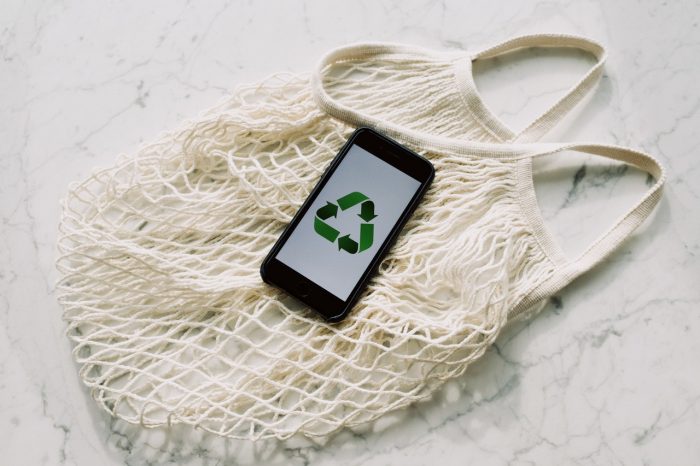While many CEOs do not think about sustainability when operating their businesses, the practice is vital to protect our environment and reduce waste in the workplace.

Albert Boufarah of SAMR Inc., a Lakewood, NJ-based computer recycling firm, shares ways companies can adopt sustainable practices like recycling to preserve their profits and improve their bottom line.
How Sustainable Policies Improve Businesses
Sustainable practices in the workplace are good for business. A 2012 UCLA study found that companies with sustainable practices experience 16% higher productivity. These results contradict the long-held assumption that they put businesses at a disadvantage.
When employees are taught to practice sustainability, they can have a direct impact on our environment. Small actions may not make much difference in the long run, but when their effects are added together across the entire workforce, they can significantly impact the planet.
The Global E-Waste Problem
Around the world, only 17.4% of all e-waste is recycled each year. Recycling practices vary around the world. In Europe, 42.5% of all e-waste is recycled.

Typically, many prosperous countries send their e-waste to developing countries where it is incinerated. This practice causes severe pollution and health problems for the people tasked with the disposal of these materials. Responsible e-waste recyclers ensure that the hazardous materials are removed and properly disposed of before the remnants are recycled in accordance with state & federal regulations.
Recycling for the Future
One of the categories that many businesses neglect to recycle is computer equipment. In executive circles, disposal of obsolete equipment is often viewed as a chore, and sometimes old machines will be stockpiled or discarded with standard trash rather than being taken to a reputable laptop & electronics recycling company like SAMR Inc.
Computers, televisions, and other types of electronic equipment contain several different hazardous materials that need to be properly disposed of. These materials include mercury, lead, and other heavy metals. Failing to dispose of these materials safely can lead to contamination of the air, soil, and groundwater, causing human & wildlife health problems for years to come.
In addition to hazardous substances, computers also contain precious metals and other materials that should be extracted before disposal. These materials include gold, silver, copper, and cobalt to make circuit boards, rechargeable batteries, and hard drives.

Plastic and glass components of computers and other electronic equipment can also be reused and recycled. This practice can lead to a lower level of dependence on imports & additional mining for new raw materials.
Other Sustainable Practices
Albert Boufarah wants to encourage companies to look into all the ways they can become more sustainable. Here are several examples of other practices that companies can adopt to make their businesses more environmentally friendly, in addition to recycling their e-waste:
1. Train Employees Properly
Employees need to be trained to undertake sustainable activities in the workplace. Employees often have insights that can help their companies reduce waste and improve the work environment. The average employee should know how their job is affected by environmental sustainability.
A few beneficial practices, according to Albert Boufarah, include reducing the amount of paper that employees use in their daily course of work. Restricting the printing of emails and memos is an excellent place to start.
2. Using Water and Energy Responsibly

Companies can pay attention to their environmental sustainability by reducing their water use. They can convert to efficient fixtures like toilets and faucets. They can also work to reduce their electricity usage by turning off all unnecessary lights and electronic equipment.
3. Recycling
In addition to computer recycling, businesses should pay close attention to recycling everyday materials like paper, plastics, and glass. Companies should have easily accessible recycling bins for all of their employees, and employees should also be encouraged to reduce and reuse materials whenever possible.
4. Using Safe Chemicals
Employees in charge of selecting cleaning, pest control, and weed management products should make sure that they choose the most sustainable items. Employees need to be trained in the proper disposal of these chemicals as well. If your company outsources cleaning and lawn care, make sure that the service providers use green products.
5. Developing Sustainable Practices
Companies should form sustainability committees that can draw up actionable proposals for handling these processes. Recycling, chemical use, conservation of resources, and energy use should be addressed, in addition, to properly disposing of electronic equipment.
Enhancing the Bottom Line

Companies that practice sustainable habits spend less on raw materials and energy, meaning that they can preserve more of their profits for their use. Albert Boufarah of SAMR Inc. can help companies develop strategies to reuse and recycle their outdated computer equipment forming an important piece of the puzzle that completes the cycle of sustainability.
If your company has equipment that needs to be recycled, contacting a qualified electronics recycler like SAMR Inc. can help you ensure that both the environment and your profits are protected, as well as your proprietary data.










